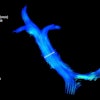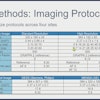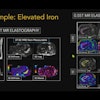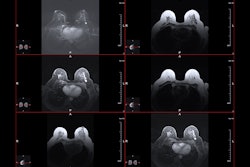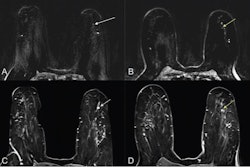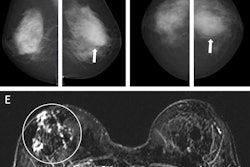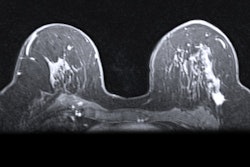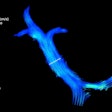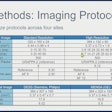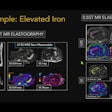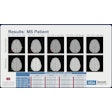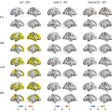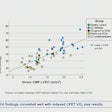Switching between abbreviated and full protocols for breast MRI -- depending on the abbreviated imaging findings -- reduces exam time and lowers recall rates, according to poster data to be presented May 12 at the ISMRM annual meeting in Honolulu.
In fact, exam time could be even more efficient if radiologist performance is taken into consideration, according to doctoral candidate Luuk Balkenende of the Netherlands Cancer Institute. (The research's senior author is Ritse Mann, MD, PhD, of Radboud University Medical Center in Nijmegen, the Netherlands.)
"The average time of the AI protocol could even be shorter than the abbreviated protocol, provided that the AI's specificity matches that of radiologists," Balkenende and colleagues noted. "This highlights the importance of optimizing AI models to perform at a level comparable to radiologists' for this adaptive protocol."
Full MRI breast cancer screening exams are time-intensive, but abbreviated ones tend to have higher recall rates, the investigators explained. They assessed the efficacy of a breast MRI protocol where a full scan would be performed only when abnormalities were identified on an initial abbreviated scan, setting theoretical boundaries on the average protocol time and recall rate for an AI-driven adaptive MRI breast cancer screening protocol based on best- and worst-case scenarios (best case: AI chooses the same patients radiologists would refer for additional scanning; worst case: AI and radiologists refer different patients for further scanning).
Data used to set breast MRI protocol bounds | ||
Measure | Full protocol | Abbreviated protocol |
| Sensitivity | 92% | 90% |
| Specificity | 95% | 92% |
| Exam time | 768 seconds | 342 seconds |
"These bounds represent the range of overlap between AI and radiologists for positive and negative cases, considering different AI specificity and sensitivity levels," the researchers wrote.
The group calculated average times and recall rates of the full and abbreviated protocols and reported that "specificity has a considerably greater impact on the time bounds than sensitivity," noting that this result "is expected, as the screening population without malignancies is much larger than the group with malignancies."
 Protocol time and recall bounds as a function of AI specificity and sensitivity. On the top, the bounds are shown as a function of the specificity of the AI algorithm, for a fixed value of the sensitivity of that same AI model. On the bottom, the bounds are shown as a function of the sensitivity, for a fixed specificity. Graphics and caption courtesy of the ISMRM.
Protocol time and recall bounds as a function of AI specificity and sensitivity. On the top, the bounds are shown as a function of the specificity of the AI algorithm, for a fixed value of the sensitivity of that same AI model. On the bottom, the bounds are shown as a function of the sensitivity, for a fixed specificity. Graphics and caption courtesy of the ISMRM.
The study suggests that "an AI-driven hybrid protocol could combine the strengths of both … and improve MRI screening by reducing acquisition time and recall rates, enhancing patient-centric care, improving MRI availability and achieving better breast cancer screening," the group concluded.
Check out AuntMinnie.com’s full coverage of ISMRM 2025 here.

